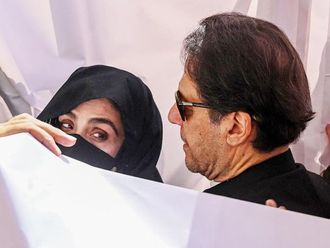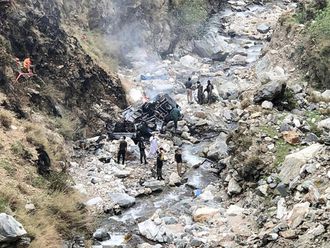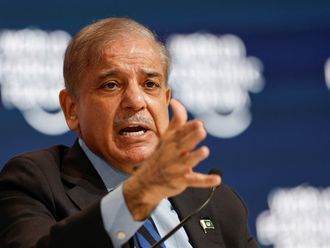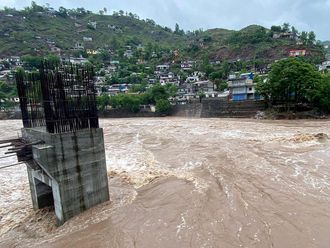Karachi: A Supreme Court of Pakistan bench, hearing the Karachi security, law and order case, on Thursday expressed its gross dissatisfaction over the cosmetic measures the police took in the name of security and lavishly spent state resources on outdated technology.
The apex court’s larger bench headed by Justice Amir Hani Muslim, had on Thursday summoned the chief secretary as well as the police chief of the province to explain the government’s position over the kidnapping of Owais Shah, the son of justice Sajjad Ali Shah, the Chief Justice of Sindh High Court.
Shah was kidnapped about a month ago from this southern city and remained untraceable to the Sindh police.
He was dramatically recovered in an army action in Pakistan’s lawless tribal area in the north, while his captors were attempting to smuggle him into neighbouring Afghanistan. Three of the kidnappers were killed in the action and a shackled and chained Shah was safely recovered.
The Supreme Court, which has been hearing the law and order case in Karachi for past several years, ordered police to come up with its report as to how Shah was so easily kidnapped from a busy commercial centre of the city and why police could not solve the case.
The chief secretary told the court that disciplinary action was being taken against four officers of senior/superintendent of police rank, as well as 24 deputy superintendents.
The court was told police had installed only two-mega-pixel close circuit cameras on the streets of Karachi, which were insufficient to capture the facial features of any suspects, even if they such a person is caught on camera while committing a crime.
Th apex court bench was also irked by the admission of police representatives that the CCTV was not working at the time of Shah’s kidnapping.
The bench remarked that the Shah kidnapping report amounted to throwing dust into the court’s eyes.
It further questioned who would be held accountable for 500 million rupees (Dh17.5 million), spent from public taxes, on such a useless project.
The court ordered the chief secretary and police chief to bring a detailed record of the CCTV expenditures into the court, so that a good account could be taken of the state expenses and the matter could be referred to the National Accountability Bureau (NAB), if need arose.












